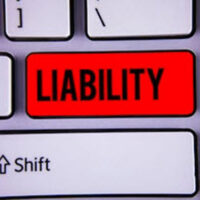Broker and Shipper Liability: Holding Third Parties Accountable for Commercial Vehicle Accidents in Florida

Truck accidents in Florida can leave victims with devastating injuries, financial burdens, and emotional trauma. While many people assume liability always rests with the truck driver or the trucking company, the reality is more complex. In certain cases, brokers and shippers (the companies that arrange freight transportation or load cargo) may share responsibility for a crash. For victims in West Palm Beach and throughout Florida, understanding how to hold these third parties accountable is critical to securing fair compensation.
In these situations, working with experienced West Palm Beach truck accident attorneys can make the difference between a denied claim and securing the full compensation you deserve. Skilled attorneys understand how to investigate the role of brokers and shippers, tracing liability back to the companies whose negligence contributed to the crash.
Understanding Broker and Shipper Roles
In the trucking industry, freight brokers act as intermediaries, connecting shippers who need goods moved with trucking companies that provide the transportation. Shippers, on the other hand, are responsible for preparing, packaging, and loading the cargo onto the truck. Both entities play an important role in ensuring the load is transported safely and lawfully.
When brokers cut corners by hiring unsafe carriers, or when shippers overload or improperly secure cargo, their negligence can create dangerous conditions that lead directly to collisions on Florida highways. Victims should not be left to bear the costs when a third party’s decisions contribute to a crash.
Florida Law on Third-Party Liability
Florida law allows victims to pursue claims against any party whose negligence caused or contributed to an accident. Under Florida Statute §768.81, the state follows a modified comparative negligence rule, which means multiple parties, including brokers and shippers, may be held liable based on their percentage of fault. If, for example, a shipper overloaded a truck and caused it to tip over, the shipper can share responsibility with the driver and trucking company.
In addition, Florida courts have recognized claims against brokers and shippers for negligent hiring, negligent entrustment, and improper cargo handling. Each of these legal theories provides a pathway for victims to recover damages beyond the trucking company’s insurance coverage, which can be especially important in catastrophic cases where medical bills and losses far exceed basic policy limits.
Federal Regulations and Their Role in Florida Cases
Many truck accident cases in West Palm Beach also involve federal and state regulations, since commercial trucking is governed by the Federal Motor Carrier Safety Administration (FMCSA), which has been largely adopted by Florida law. Brokers are required to verify that the carriers they hire have proper operating authority, insurance coverage, and a satisfactory safety record. When brokers fail to properly vet carriers, such as contracting with a company that has a history of safety violations, they may be held liable for resulting crashes.
Shippers are also subject to federal cargo securement regulations, which mandate that loads be properly distributed and tied down. Improperly loaded cargo can cause rollovers, jackknifes, or cargo spills that endanger everyone on the road. These rules remain foundational, but FMCSA continues to issue updates and corrections to ensure safety standards remain clear. For example, in November 2024, FMCSA issued technical corrections to its safety regulations, effective January 2025, reinforcing the importance of strict compliance across the trucking industry.
Real-World Implications for Florida Victims
Florida’s highways, including I-95, I-75, and the Florida Turnpike, carry thousands of commercial trucks daily, and Palm Beach County is no exception. According to the Florida Department of Highway Safety and Motor Vehicles, there were more than 4,000 crashes involving large trucks statewide in 2023, many of which caused serious injuries or fatalities. With so much truck traffic moving through Palm Beach County and the West Palm Beach area, the risks of catastrophic accidents remain high.
In many of these cases, the trucking company’s insurance may not fully compensate victims for their damages. This is where pursuing claims against all responsible parties, including brokers and shippers, becomes essential. By holding all negligent parties accountable, victims may be able to access broader pools of compensation to cover medical expenses, lost wages, pain and suffering, and long-term care needs.
Why Legal Representation Is Essential
Truck accident cases involving brokers and shippers are among the most complex in personal injury law. These cases often require detailed investigations, expert testimony on industry standards, and an in-depth understanding of both Florida law, the trucking industry, and federal trucking regulations. Insurance companies representing brokers and shippers frequently fight aggressively to avoid liability, which can make litigation even more challenging.
For victims, having the right legal representation can mean the difference between walking away with an inadequate recovery and securing the compensation necessary to rebuild their lives.
Contact Smith, Ball, Báez & Prather
If you or a loved one has been injured in a truck accident in Florida, you should not have to face the financial and emotional toll alone. At Smith, Ball, Báez & Prather, our attorneys have the knowledge and resources to pursue claims not just against truck drivers and carriers, but also against brokers and shippers whose negligence may have contributed to your injuries. Contact us today to discuss your case and learn how we can help hold all responsible parties accountable.
Sources:
Florida Statutes §768.81 – Comparative Fault
Florida Department of Highway Safety and Motor Vehicles – Crash and Citation Reports & Statistics
FMCSA Cargo Securement Rules
FMCSA Federal Register Technical Corrections (Nov. 18, 2024, effective Jan. 2025)
